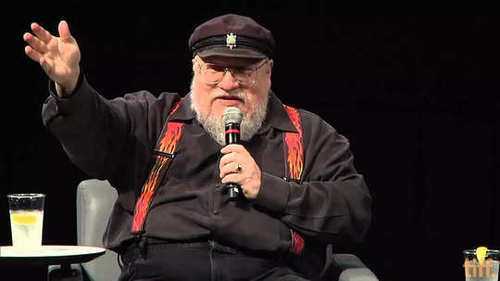
In an age dominated by sleek computers, AI-assisted editing tools, and cloud-based writing software, George R.R. Martin—the creator of 'Game of Thrones' stands out for his traditional method. Martin famously utilises a vintage DOS-based word processor from the late 1980s to write his massive Westeros epic. But why does one of the world's best-known fantasy authors continue to use technology that most others have abandoned decades ago? The solution lies in his creative attitude and the particular advantages that this "outdated" process provides.Also Read:
A Nostalgic Connection to Simplicity Martin's preferred word processing software is WordStar 4.0, which runs on a DOS-based computer. For those unaware, WordStar was a popular early computing tool known for its simplicity and usefulness. Unlike modern word processors, which come with a plethora of features and frequent updates, WordStar is entirely focused on text—no distractions, no formatting problems, just words. Martin has frequently stated a preference for the simplicity of this instrument. He can focus fully on the craft of storytelling without being distracted by the internet, notifications, or an infinite number of font possibilities. The minimalist interface reflects his philosophy that writing should be about words and ideas, not tools or bells and whistles. Avoiding the Noise of Modern TechnologyIn interviews, Martin has noted how current technology is cluttered and overpowering. The blinking cursors, predictive text, and other software alternatives can all impede a writer's creative flow. Martin uses WordStar 4.0 to create a distraction-free writing environment. For an author handling a complicated narrative with dozens of characters, intricate plotlines, and multiple timelines, this type of focused workstation is essential. Martin's typewriter-like arrangement helps him to fully immerse himself in the world of Westeros while avoiding modern distractions that might take him out of his creative zone. The Power of Muscle MemoryMartin's fingers glide effortlessly across the WordStar keyboard after decades of use, demonstrating the power of muscle memory. Unlike modern authors who bounce between platforms and technologies, Martin has a constant workflow. He knows the commands for saving, editing, and formatting like they're second nature, reducing the learning curve that comes with new software. This regularity promotes a sense of comfort and familiarity, which is essential for staying productive over the years-long process of creating an epic like 'A Song of Ice and Fire'. A Touch of IndividualityMartin's use of old technology is not only practical but also intensely personal. In a literary world where technology is continuously advancing, his dedication to WordStar distinguishes him as an artist who prioritises uniqueness over trends. It matches his overall creative philosophy: storytelling is about the writer's distinct voice, not the tools they employ. This individualism reflects the highly complex universe he's created in 'Game of Thrones', where each character, society, and locale feels distinct. Martin's writing method is unorthodox, as are the stories he relates. Why It Works For HimThe antique typewriter-style setup may not be for everyone, but it works perfectly for Martin. It reduces distractions, maintains his creative flow, and is consistent with his methodical approach to writing. In a world where speed and efficiency are frequently prioritised, Martin's methodical pace enables him to craft complex, immersive, and highly compelling novels. Using WordStar is not about opposing modernity; it is about determining what works best for him. His arrangement reminds us that creativity often thrives when we embrace the tools and techniques that suit our approaches, regardless of fads or standards. Read More: George R.R. Martin's use of old technology is more than just a quirk in his creative process; it provides insight into how he approaches storytelling. By sticking with a DOS-based word processor, he can concentrate on what is truly important: the words on the page. In an age of limitless distractions and ever-changing technology, Martin's decision is an inspirational illustration of how simplicity can spark innovation. Whether you're a fan of 'Game of Thrones' or a writer yourself, his approach serves as a reminder that sometimes getting back to fundamentals is the best route ahead.